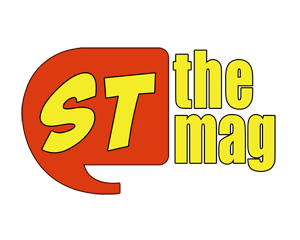The shelf life and lifespan of literary magazines was never guaranteed.
That should have been an understanding from the start.
The moments of permanence in that universe are rare.
What our Subscribers Say
-
"eFiction India is trying to fill in a huge gap that the magazine industry has in this part of the world- there are so many stories to tell from so many parts of the country. But where are all those stories going? It would be a shame not to read the new voices that are coming out, streaming out even, every single Indian day on the calendar. E-fiction offers stories that are very readable- with different shades of experience be it humour, romance or angst. Poetry is not ignored either, in fact it is relished with some of the poems being turned into songs. 'Creativity counts no coins' is a feature that stayed with me once I read the magazine. How necessary it is to give quality education if our children, our future, are to shine bright and tell us braver, better stories! Look forward to more thought-provoking issues in the future!"Neelima Vinod
-
Murli Melwani
Also, let me congratulate you. I’ve dipped into it [eFiction India]. The quality of the writing is high. But the remarkable thing is that this is a new concept in e-zines: it is a sort of global franchise, a literary franchise. The parent efiction magazine farms out submissions to it member/editors in different parts of the world. Another of the wonders of the internet age.
Plano TX (US) -
mstanik
For those who still think the literature of India is just about gods, the British raj, extreme poverty, Bollywood movies, or call centres full of people mimicking American accents, please read this collection of short stories and poetry from some of India's best and most promising writers. I was especially taken with "The Tree Husband," a short story by Barnali Saha about a woman's longing for a marriage that scarcely exists, longing in the presence of another bond that is far more certain. As well, "Phobia," the story of one young woman who wants to pursue a career and other ambitious goals and does not want to be pregnant (at least not yet) will leave you with a bit of an ache in your heart. Read this collection. As soon as you are able.
Amazon Verified Purchase -
I learnt about eFiction through a facebook post. I have read every poem, almost all stories and seen all the recent short movies. As a reader, it’s a relaxing and neat (I like the swank design and feel) place to visit. I usually save the movies for Saturdays. If I were to define my eFiction experience in more material terms, it’s like getting to visit and linger on in a luxury resort.Neetu Ralhan
[email protected] -
Amandeep Rana
"Just went through the magazine and I think it is one of the most amazing works that I have read so far. So much maturity in the art from people who have barely started their journey in life is phenomenal. I am sure it must be a tough job choosing an article over another and working on them, but I must say that the team of eFiction India has done brilliant job. From the eye catching cover to the easy to read design and content. Cant wait for another issue to come out"
New Delhi, IN -
"efiction India is versatile and one of its kind, which is reflected in the fact that it does not just limit itself to publishing fiction, but delves into music as well. It does what no other magazine does. It gives the real meaning, it gives life to the write-ups through these poetry based songs which make the magazine distinctly unique."Ananya Dhawan

 Vol.05 Issue.02 Available In PDF | MOBI | EPUB | PRINT GET THE LATEST
Vol.05 Issue.02 Available In PDF | MOBI | EPUB | PRINT GET THE LATEST 

 Stories to Films
Stories to Films  Strip Tease- The Magazine Visit Us http://www.stripteasethemag.com/
Strip Tease- The Magazine Visit Us http://www.stripteasethemag.com/  Advertise With Us
Advertise With Us 









